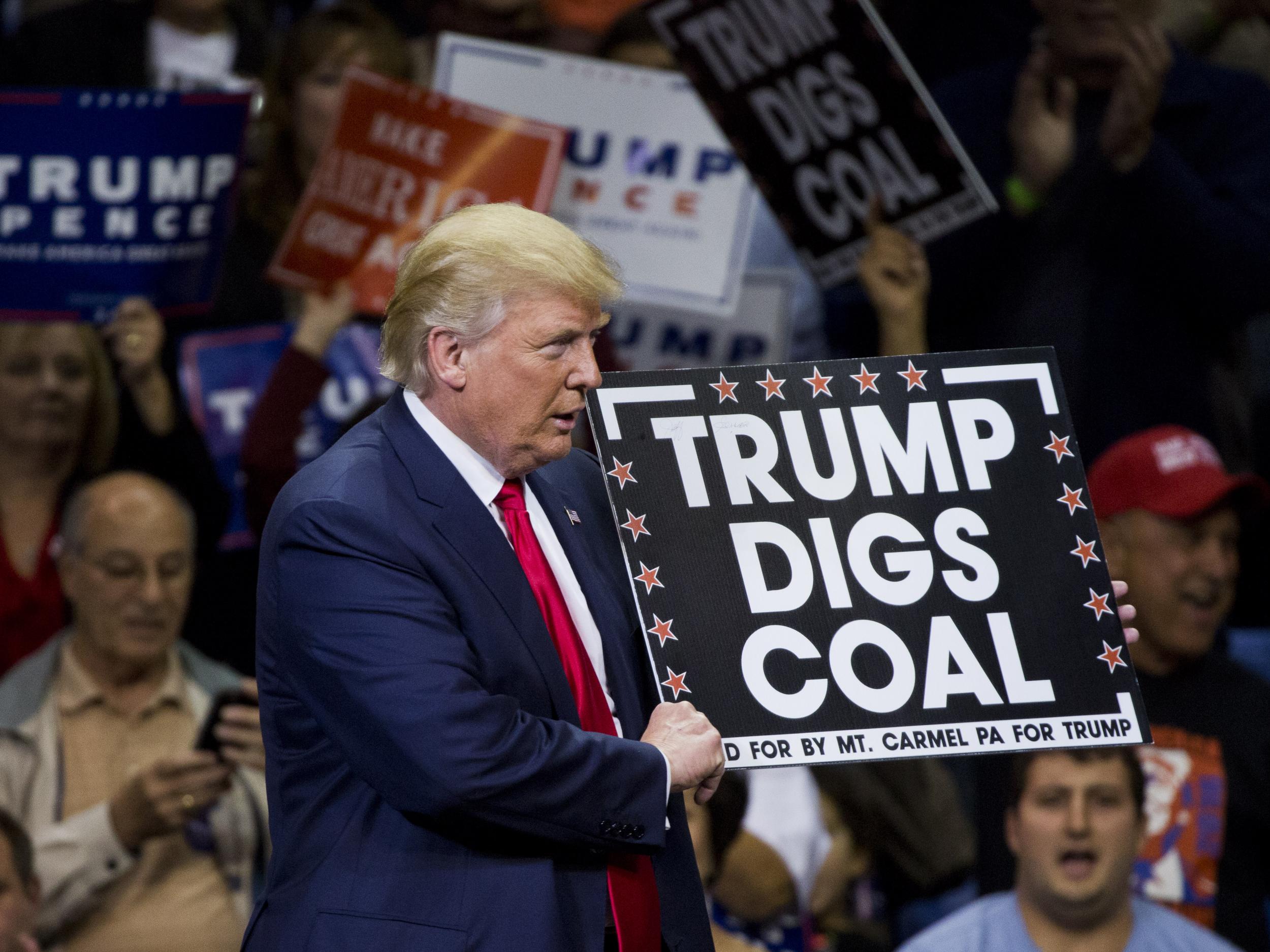Trump and his fellow climate villains are making their presence felt at critical global warming talks
Analysis: After the US caused a stir at a major UN summit in Poland, Josh Gabbatiss considers the wider implications of nation-level climate change denial


While most of the UK is preoccupied with the never-ending Brexit saga, over in Poland world leaders have gathered to hash out the terms of an agreement that makes Theresa May’s troubles look trivial.
The Paris Climate Accord has the potential to shape our planet’s history for decades, centuries and even millennia into the future by tying the world’s squabbling mess of factions and ideologies into one common goal: cutting greenhouse gas emissions and saving the planet from climate change.
Delegates in the coal mining town of Katowice are trying to establish how to make such an agreement work in practice, but predictably their efforts are being hampered by the petty (by comparison) concerns of world leaders.
Forming what one climate scientist has termed an “axis of evil”, Russia, Saudi Arabia, Kuwait and the US triggered a diplomatic furore on Saturday night when they teamed up to block the use of a single word.
Most nations were poised to “welcome” the inclusion of the Intergovernmental Panel on Climate Change’s momentous report on warming beyond 1.5C above pre-industrial levels, but the so-called “climate villains” were not so hospitable. Instead, they wanted to merely “note” the catastrophic warnings of coral reef extinction, sea ice melt and rising seas which scientists say will ensue without big cuts to carbon emissions.
As the four nations are among the top global producers of oil, it is not difficult to work out what motivated this decision.
The one-word difference may seem trivial, but to those working on the front lines of climate change, it is far from it. Rather, it symbolises the difference between accepting and not accepting science; the difference between taking the 1.5C target seriously or not.
Many hoped the talks in Poland would see countries raising their carbon-cutting ambitions to account for the ambitious target (which is lower than the 2C maximum increase target also included in the Paris agreement). Watering down the importance of the IPCC’s vital work could mean it is more easily ignored by nations less inclined to follow the Paris goals.
Still, it is not the end of the world, and as the controversy only involved one section of the talks, there remains a chance the IPCC’s work could find a firmer place in the COP’s final outcome.
Perhaps of greater concern is the increasingly erratic behaviour on show from the US, which entered the summit as something of a wild card. With the renowned “climate denier in chief” Donald Trump at the helm, America has already pulled out of the Paris Climate Agreement, but it will continue to attend these meetings until the withdrawal becomes a reality in 2020.
In the meantime, the American delegation appears to be undermining efforts by the rest of the world to secure a greener future. On Monday, US government and industry representatives gathered at a side event within the climate summit to lay out their case for “clean” fossil fuels in the fight against climate change. Some of the panellists were shameless in their promotion of continued fossil fuel extraction (against virtually all advice from climate experts) and in their warnings of “alarmism” over climate change.
This attitude suggests that as the talks enter their second week, with big decisions to be made about financing for climate adaptation and the “rulebook” used to implement the Paris Climate Agreement, the US is poised to cause more trouble. In tandem with more traditional climate rogues like the Saudis, this could have lasting consequences for the environment.
If Mr Trump had any sense, he would appreciate that climate change is already playing out in the wildfires that have burnt much of California to cinders, or the hurricanes that have torn through Florida and Texas. For the time being, though, it seems the world will have to rely on the huge number of American states, cities and scientists who have made it clear they do not intend to follow their president’s lead on climate change.
The events in Katowice are difficult to follow – the language used is technical, the discussions are complex, and the bureaucracy impenetrable. But the decisions being made about tweaks to this word or that will have severe and lasting consequences.
Join our commenting forum
Join thought-provoking conversations, follow other Independent readers and see their replies
Comments